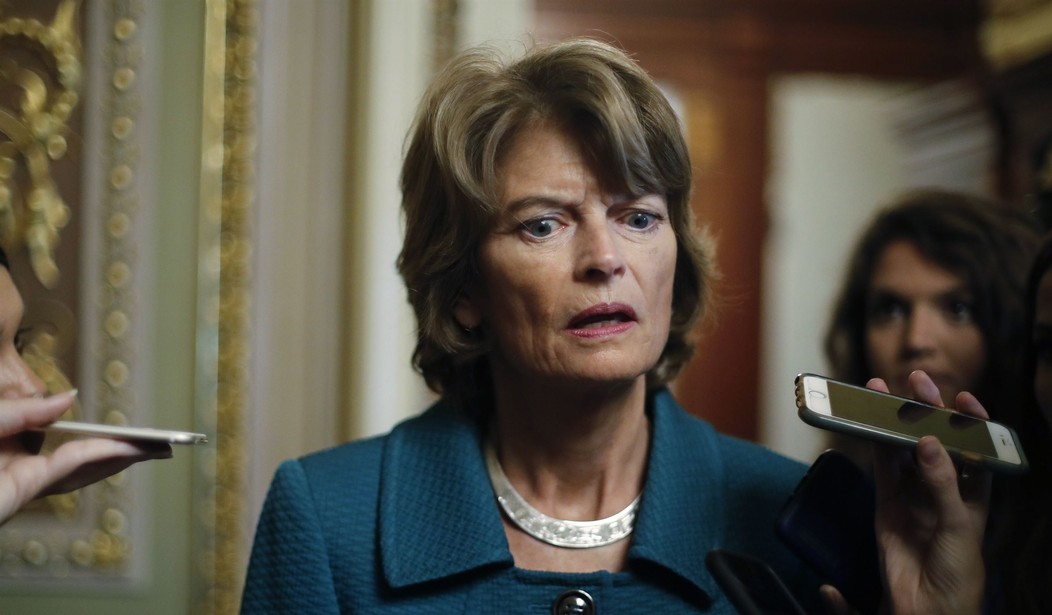This poll is a month old but it’s circulating today for some reason, and I hadn’t seen it before. It’s something.
The assumption all along has been that Murkowski is bulletproof in Alaska, partly because she’s a long-time incumbent and partly because the state has a new ranked-choice voting system that should help her — in certain circumstances. It’ll protect her from having to face an exclusively Republican electorate in a primary, at least. She’s crossed Trump repeatedly, first by not supporting Brett Kavanaugh’s confirmation to SCOTUS, later by voting to convict him at his impeachment trial, and has criticized him frequently along the way. But it was thought that Murkowski enjoyed enough goodwill at home from centrists of both parties that she could squeak through to another term. A politician capable of winning a statewide race in a write-in vote, as she did in 2010, is no easy out.
But maybe it’s time to adjust that thinking.
This favorable rating, if accurate, seems unsurvivable:
A majority (59%) of Alaskan voters view Lisa Murkowski unfavorably while just 26% hold a favorable opinion of her.
Dem: 48% favorable – 20% neutral – 32% unfavorable
Rep: 6% – 8% – 84%
Ind: 32% – 14% – 52%By contrast, 85% of Republicans view former President Trump favorably. pic.twitter.com/Qca6a4h9nT
— Change Research (@ChangePolls) June 8, 2021
A new national poll out today from YouGov confirms that Murkowski is unpopular in her own party. Among Democrats she stands at 29/31 in favorability, among indies at 20/35, and among voters of her own party at 18/35. Again, that’s adults nationally; I question how plausible it is that she could be -17 net favorable among Republicans across the U.S. and -78(!!!) among R’s in her own state.
But that’s the data we have and the pros are paying attention. “To me, the conventional wisdom that Sen. Lisa Murkowski (R) is favored just b/c she won a write-in campaign back in 2010 and Alaska has a new top-four system has never been that compelling,” tweeted Dave Wasserman in response to the Change Research numbers. “AK’s a red state, and GOP voters now view her as a Dem.” Another explained the difference between Murkowski and the recently reelected Susan Collins well: “Maine Republicans know Collins is about the most conservative Senator they can get from their state. Alaska Republicans know Murkowski is about the least conservative Senator they can get from their state.” Collins’s base can forgive her a lot because they know that seat’s going blue if they don’t. Not so for Murkowski and her own Republican constituents.
Last month analyst Joe Szymanski looked at Murkowski’s 2022 prospects and concluded they’re poor and fading:
Murkowski’s style of politics, which used to be the mainstream, now seem out of touch. Remember that Murkowski only lost her 2010 primary by around 2000 votes. I am quite confident that if she were to face a similar challenge in 2022, that number would be much wider. Her staying power with Republicans has tanked, and if recent polling is to be believed, her numbers with independents (who lean right in Alaska) aren’t great either.
The only people she is above water with approval wise are democrats, and even they don’t give her 50% approval. That just wouldn’t be enough to do what she did in 2010. It’s not the same atmosphere of American politics, where today voters are tired of the perceived establishment and dynasties – if which Murkowski is both. And I do think that people are tired of being represented by a Murkowski in this seat. Republicans want something new.
For all the hype about Murkowski’s strength in Alaska after the 2010 write-in miracle, he notes, she’s never taken 50 percent of the vote in any of her three elections there. And he makes a good point about ranked-choice voting, one that was just confirmed again with the results of New York City’s Democratic primary for mayor. It’s nearly always the case that the person who leads after the first round in an RCV race goes on to win — and it’s all but impossible to imagine Murkowski leading after the first round in Alaska. She won’t be the first choice of Republican voters; that’ll be Kelly Tshibaka, who’s already been endorsed by Trump as part of his revenge crusade against Murkowski. She *probably* won’t be the first choice of Democrats either. That’s likely to be Al Gross, who was the de facto Democratic nominee in the 2020 Senate race and seems likely to run again.
She could theoretically get enough second-choice votes from a fourth-place finisher to squeak past Gross into the final against Tshibaka, but you wouldn’t necessarily bet on it. (In fact, Gross could be the second choice of enough left-leaning Murkowski voters to give him a fighting chance at winning the seat.) And she may need a third Republican in the race to split votes with Tshibaka to help her out. A poll taken in May, before Trump’s endorsement, found Tshibaka leading the field with 39 percent, Gross second with 25, and Murkowski third with 19. Hoo boy.
Strategically, we’re left to wonder: Is it in her interest at this point to switch parties? It’s impossible to imagine her overtaking Tshibaka to become the favorite of Republicans. She could go independent, but that would probably just make her unpalatable to voters from both sides, certainly as a first choice. If she flipped to Democratic, she might be able to muscle Gross out of the race and consolidate the left. Maybe her independent supporters would stick with her too, which would keep her competitive. But she’d alienate every Republican in Alaska who’s still well disposed to her (to the extent any of those people still exist) and it’s probably impossible to win in that position in a state that red. She might be done.








Join the conversation as a VIP Member